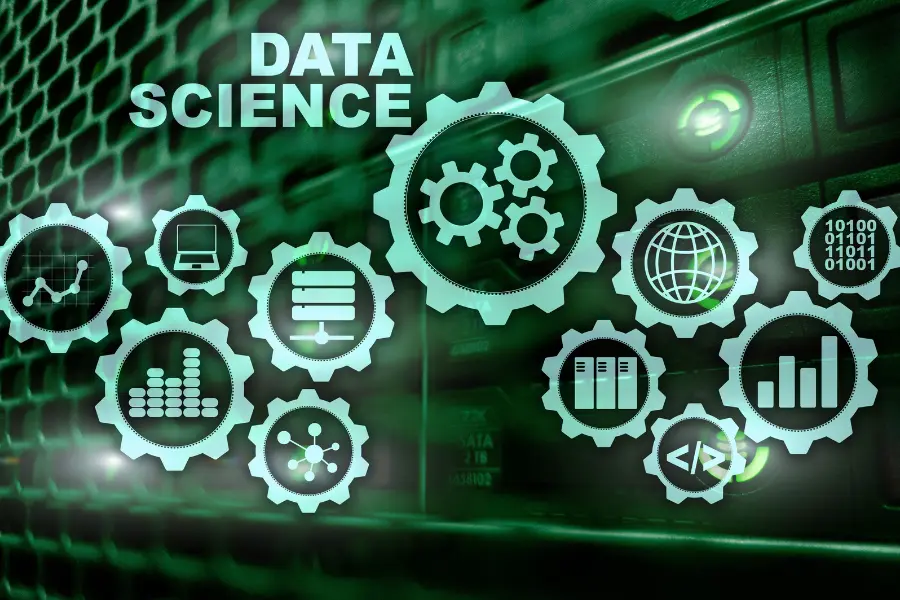Data science is an exciting and rapidly growing field recently gaining immense popularity. It is an interdisciplinary field that uses statistical and computational methods to extract insights and knowledge from data. Data science applications are vast and varied, from improving business operations and decision-making to advancing scientific research and innovation.
Building a career in data science requires a unique combination of technical and analytical skills and solid communication and problem-solving abilities. In addition, it is a constantly evolving field, and professionals must stay up-to-date with the latest tools, techniques, and trends to remain competitive. For this a Full stack data science course can always be very handy.
This article will explore the critical steps to building a successful career in data science. We will discuss the skills and education required to become a data scientist and strategies for developing a solid portfolio, gaining practical experience, and building professional relationships. We will also offer tips for identifying job opportunities and advancing your career through continued learning and professional development.
Understanding Data Science
Data science is a multifaceted field encompassing many skills and techniques. Data science involves using statistical and computational methods to extract insights and knowledge from data. This data can come from various sources, including social media, customer transactions, scientific experiments, etc.
To understand data science, it is essential to have a basic understanding of statistics, machine learning, and programming. Data scientists use statistical techniques to analyze and interpret data, while machine learning algorithms are used to identify patterns and make predictions. In addition, programming languages like Python and R are commonly used in data science to build and analyze data models.
In addition to technical skills, data scientists must also have strong communication and problem-solving abilities. They must be able to communicate complex findings to both technical and non-technical audiences effectively, and they must be able to identify and solve problems using a data-driven approach.
Data science is a dynamic and rapidly evolving field requiring diverse skills and expertise.
Developing the Right Skills
Developing the right skills is a crucial step in building a successful career in data science. The field requires a unique combination of technical and analytical skills and solid communication and problem-solving abilities. Here are some of the key skills that are essential for data scientists:
- Programming: Data scientists must be proficient in programming languages like Python, R, and SQL.
- Statistics: A strong foundation in statistics is critical for analyzing and interpreting data.
- Machine learning: Understanding machine learning algorithms and techniques is essential for building predictive models.
- Data visualization: Data scientists must be able to communicate complex findings through effective data visualization.
- Business acumen: Data scientists must have a solid understanding of the business problems they are trying to solve and be able to translate technical findings into actionable insights.
- Problem-solving: Data scientists must be able to identify and solve problems using a data-driven approach.
- Communication: Strong communication skills are essential for presenting findings to technical and non-technical audiences.
Pursuing Relevant Education and Certifications
By developing these critical skills, data scientists can position themselves for success in this exciting and rapidly growing field.
- A degree in a relevant field such as statistics, computer science, or data science provides a solid foundation in the technical skills required for data science.
- Certifications such as the Microsoft Certified: Azure Data Scientist Associate or the Google Cloud Certified: Professional Data Engineer can demonstrate proficiency in specific data science tools and techniques.
- Pursuing a data science degree and certifications shows a commitment to professional development and a desire to stay current with the latest tools and trends in data science.
- Education and certifications can increase job prospects and potentially lead to higher salaries.
- Employers may prioritize candidates with relevant degrees and certifications when hiring for data science positions.
- Education and certifications can also help fill gaps in knowledge or skills, particularly for individuals from non-technical backgrounds.
Pursuing relevant education and certifications can help individuals stand out in the competitive field of data science and demonstrate their commitment to the profession.
Gaining Practical Experience
Gaining practical experience is essential in building a career in data science. Applying the theoretical knowledge gained through education and certifications to real-world problems is vital. This can be accomplished through internships, research projects, or personal projects.
Practical experience allows individuals to develop their problem-solving and communication skills, work with real-world data, and build a strong portfolio of work. It can also provide valuable networking opportunities and exposure to different industries and business problems. Gaining practical experience in data science can set individuals apart from other candidates and help them advance their careers.
Conclusion
In conclusion, building a career in data science requires technical skills, relevant education and certifications, practical experience, and strong communication and problem-solving abilities. Pursuing a masters in data science, obtaining certificates, and gaining practical experience through internships and personal projects can provide a solid foundation for success.
It is also essential to stay up-to-date with the latest tools and trends in data science and continuously develop skills through ongoing learning and professional development. As the field of online data science course continues to grow and evolve, individuals with a robust skill set and a passion for solving complex problems with data will be well-positioned for success.



